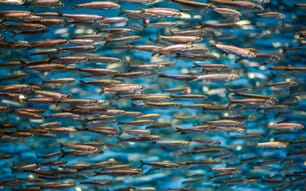The European Union and Morocco had concluded the four year fisheries deal in December 2013, however its entry into force was pending ratification by Morocco. Now that both sides have concluded their ratification procedure, EU vessels will receive certain fishing rights in Moroccan waters in return for financial assistance by the EU to develop the Moroccan fishery sector.
The protocol is the second most important of its kind and belongs to a new generation of fisheries agreements after the reform of the EU Common Fisheries Policy, placing a strong emphasis on environmental sustainability, economic profitability and international legality.
EU Fisheries Commissioner, Maria Damanaki, said on this occasion: "I am glad that this protocol can finally enter into force: our fishermen have been waiting for this day for more than two years. Now we need to make sure that our fleet can resume its activities as soon as possible. This new protocol is an example for responsible international fisheries governance: we made sure that the EU’s fishing rights do not exceed the scientifically sound limit that ensures sustainable fisheries, and that European vessels do not compete with local fishermen. I am confident that the EU’s financial support will help build a sustainable future for Moroccan fisheries through the targeted sectoral support.”
Details of the protocol
Up to 120 vessels from 11 EU countries (Spain, Portugal, Italy, France, Germany, Lithuania, Latvia, Netherlands, Ireland, Poland and United Kingdom) are concerned by the new protocol. The fishing possibilities have been increased by a third compared to the previous protocol and will now total 80,000 tonnes for small pelagic species with further fishing opportunities available for demersal, tuna and artisanal fisheries. In total, six fishing categories exploited by both industrial and small-scale fleet segments are covered by the protocol.
The cost for the EU taxpayer for accessing these increased possibilities has decreased by 30 per cent compared to the former protocol. The total cost to the EU will be €30 million a year, of which €16 million compensates Morocco for access to the resource and €14 million is directed towards supporting the fisheries sector in the country.
In addition, the ship owners' contribution is estimated at €10 million, giving a total financial envelope for Morocco of an estimated €40 million, whilst the new Protocol also provides for increased job opportunities for Moroccan fishermen.
A human rights clause is included in the Protocol and, as with all of the EU's agreements, an in-built suspension mechanism ensures that the EU can unilaterally suspend the protocol in case of human rights violations.
Detailed and regular reporting obligations for Morocco will help to demonstrate the economic and social impact of the sectoral support on the local populations. This reporting mechanism will include details on how each sectoral support project serves the best interests of all of the local population on a geographical basis.
The last protocol under the fisheries agreement with Morocco was terminated in December 2011.
Following a lengthy negotiation process, a new protocol approved by the European Parliament and Council of Ministers was signed at the end of 2013. The entry into force has been delayed until now, pending ratification of the protocol by Morocco.



